
A4 Size Parchment Poster Classic Poem Elizabeth Barrett Browning How Do
Elizabeth Barrett Browning was a Victorian-era poet known for her emotional and socially conscious poetry. She lived from 1806 to 1861. She's best known for " Sonnets from the Portuguese " and her lifelong work for women's rights and slavery. Despite a chronic, unexplainable illness and a difficult family life, she became one of the.
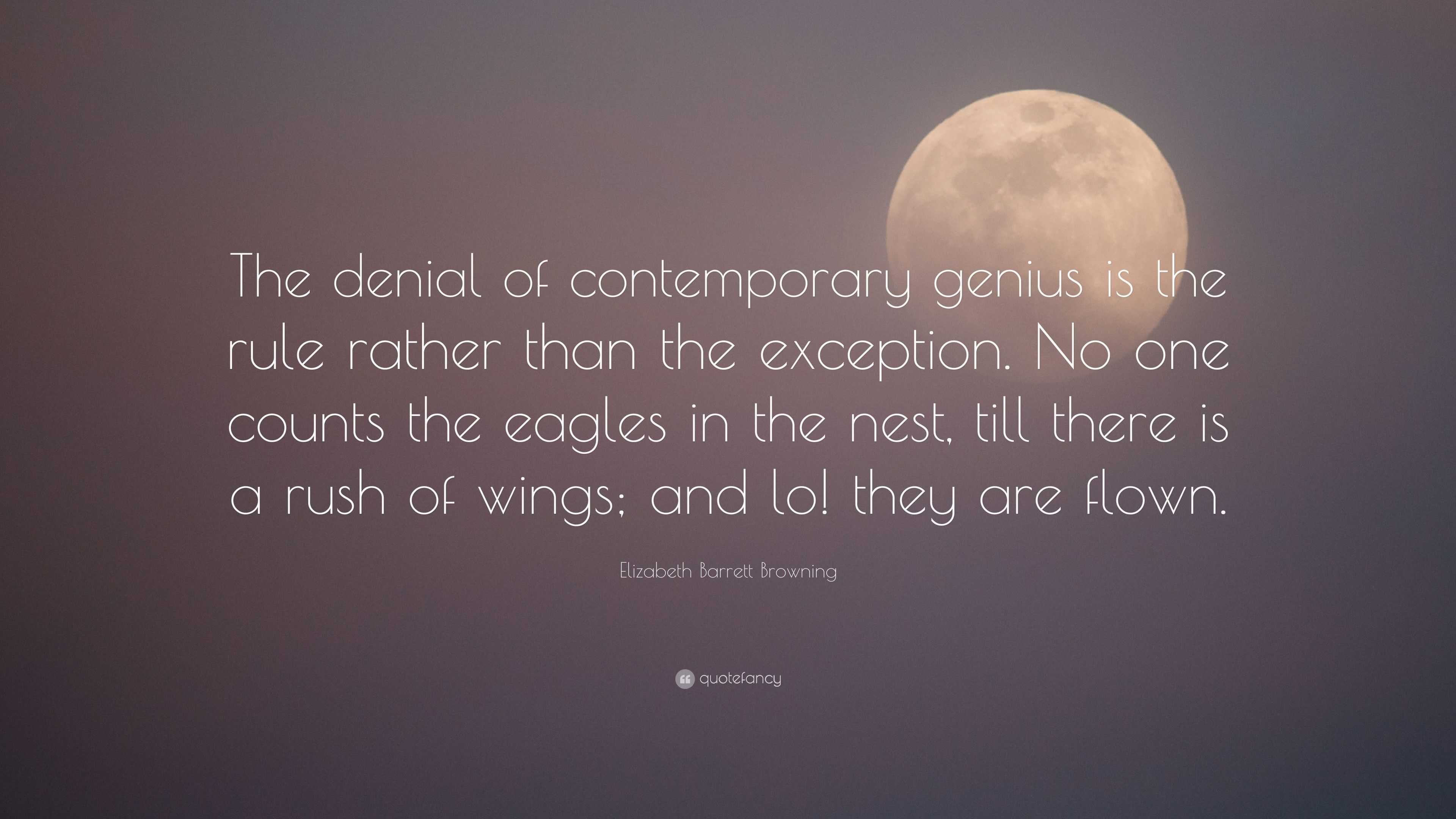
Elizabeth Barrett Browning Quote “The denial of contemporary genius is
Elizabeth Barrett Browning (born March 6, 1806, near Durham, Durham county, England—died June 29, 1861, Florence, Italy) English poet whose reputation rests chiefly upon her love poems, Sonnets from the Portuguese and Aurora Leigh, the latter now considered an early feminist text.Her husband was Robert Browning.. Elizabeth was the eldest child of Edward Barrett Moulton (later Edward Moulton.

In Ñspel BELOVED, THOU HAST… by Elizabeth Barrett Browning
I love thee to the depth and breadth and height. My soul can reach, when feeling out of sight. For the ends of being and ideal grace. I love thee to the level of every day's. Most quiet need, by sun and candle-light. I love thee freely, as men strive for right; I love thee purely, as they turn from praise. I love thee with the passion put to use.
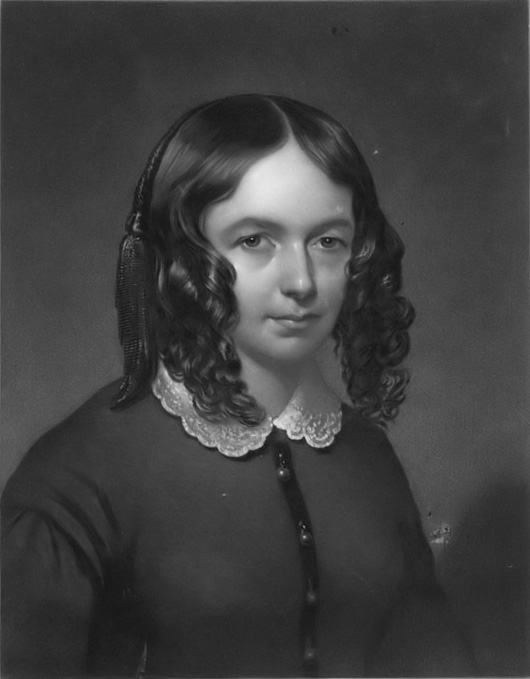
Frasi Celebri di Elizabeth Barrett Browning
This talk originally took place on 1 July 2020, part of the series The British Academy 10-Minute Talks, where the world's leading professors explain the latest thinking in the humanities and social sciences in just 10 minutes. 10-Minute Talks are screened each Wednesday, 13:00-13:10, on YouTube and available on Apple Podcasts.
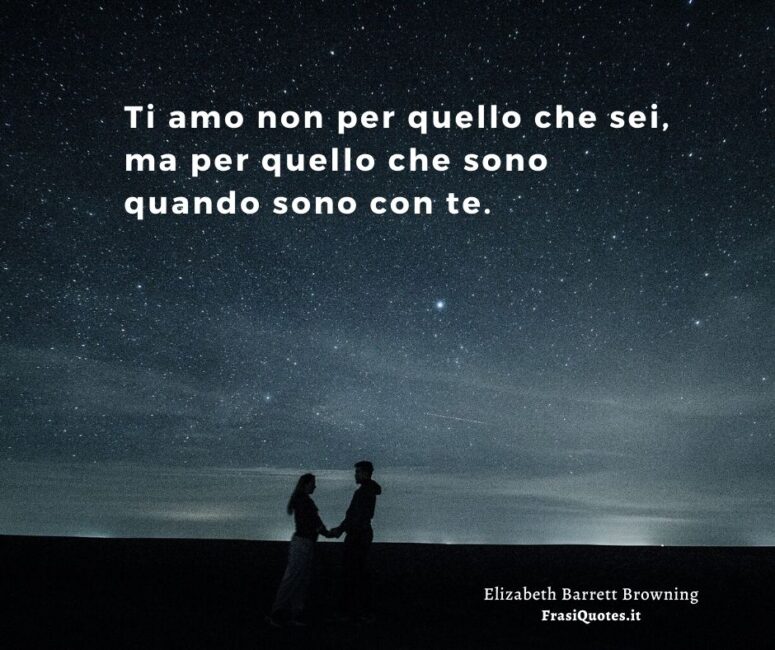
Elizabeth Barrett Browning Frase sull'amore Frasi
This edited article about Elizabeth Barrett Browning originally appeared in Look and Learn issue number 147 published on 7 November 1964. The Brownings in Venice by Arthur A Dixon Through every minute of the night before her wedding the bride lay awake, her mind and body strung to such a pitch that sleep was certain […]
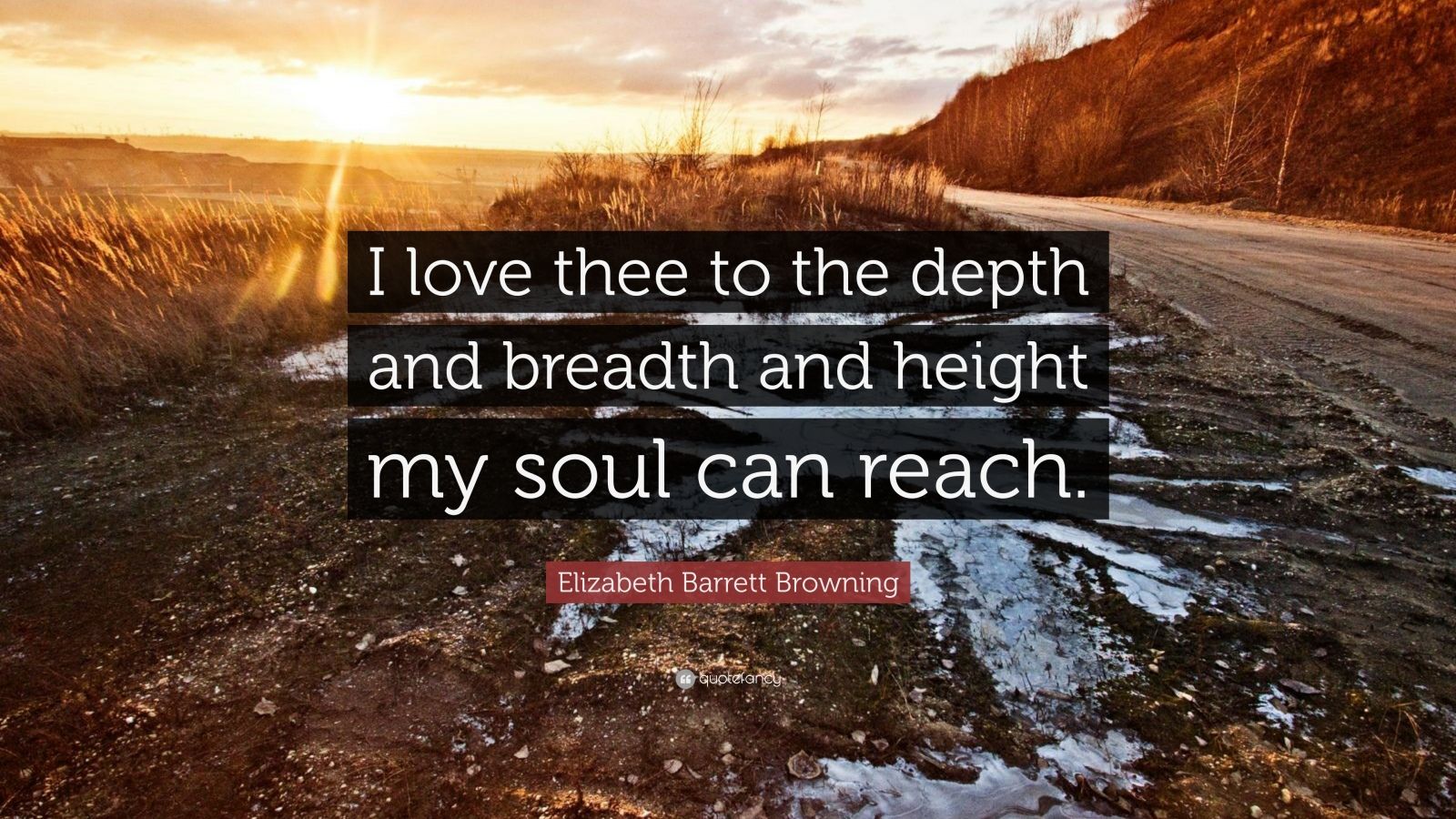
Elizabeth Barrett Browning Quote “I love thee to the depth and breadth
Elizabeth Barrett Browning. 1806-1861. Engraving from original Painting by Chappel, 1872. (Photo by: Universal History Archive/Universal Images Group via Getty Images) Among all female poets of the English-speaking world in the 19th century, none was held in higher critical esteem or was more admired for the independence and courage of her.

FileElizabeth Barrett Browning.jpg Wikimedia Commons
Elizabeth Barrett Browning and Robert Browning's letter to John Ruskin. 3 June [1859]. Armstrong Browning Library, Baylor University, Waco, Texas. Lord Derby, the off-again-on-again Conservative Prime Minister then serving, who was also the vastly wealthy 14 th Earl of Derby, was in fact to lose a vote of No Confidence the following week, and would dissolve his government on 11 June.
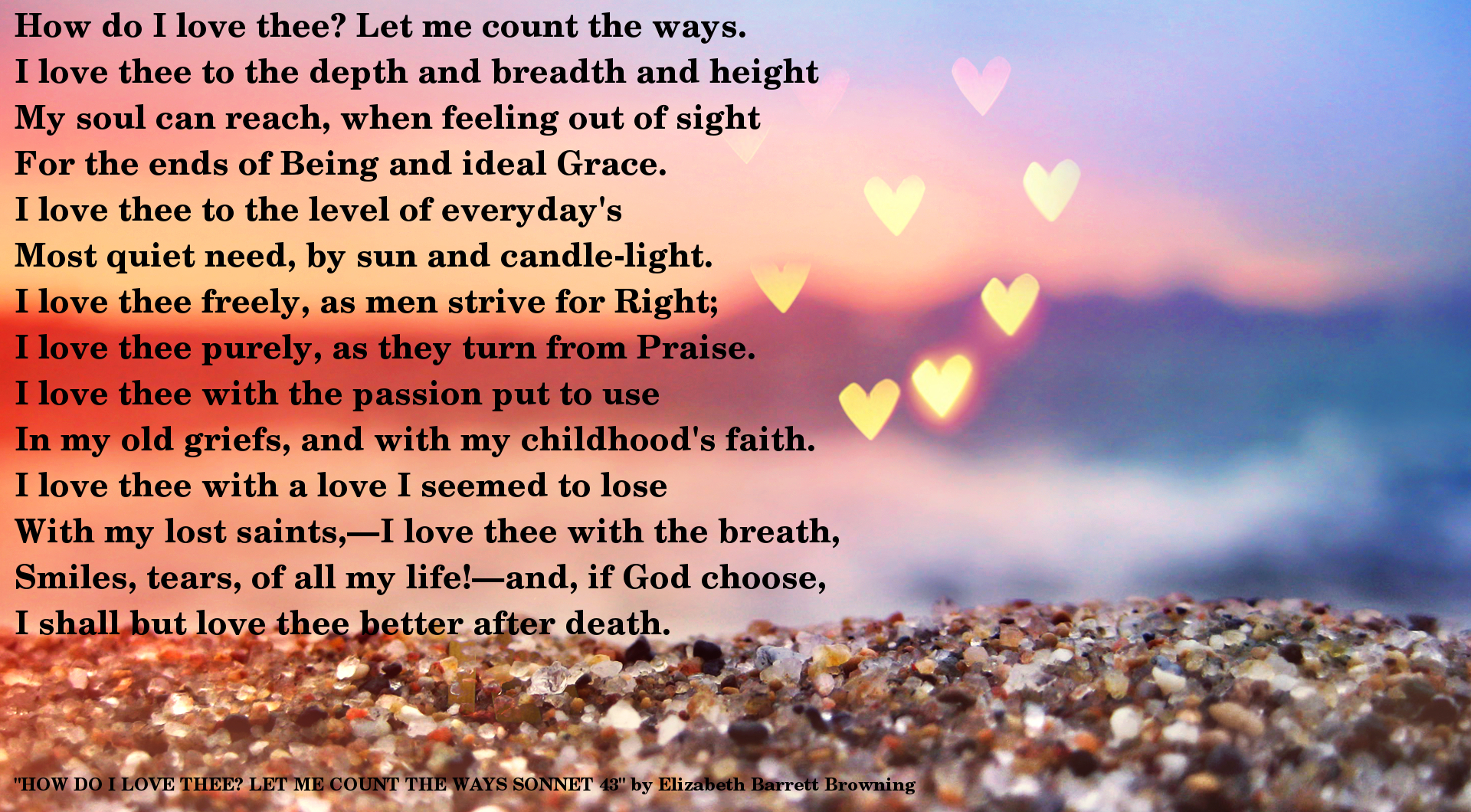
👍 Elizabeth barrett browning i love thee. How Do I Love Thee?
Elizabeth Barrett Browning - Early Life. Elizabeth Barrett Moulton-Barrett was born on 6 March 1806, in Coxhoe Hall, between the villages of Coxhoe and Kelloe in County Durham, England, to Edward Barrett Moulton-Barrett and Mary Graham Clarke. The couple had twelve children (eight boys and four girls) and Elizabeth was the oldest of her.
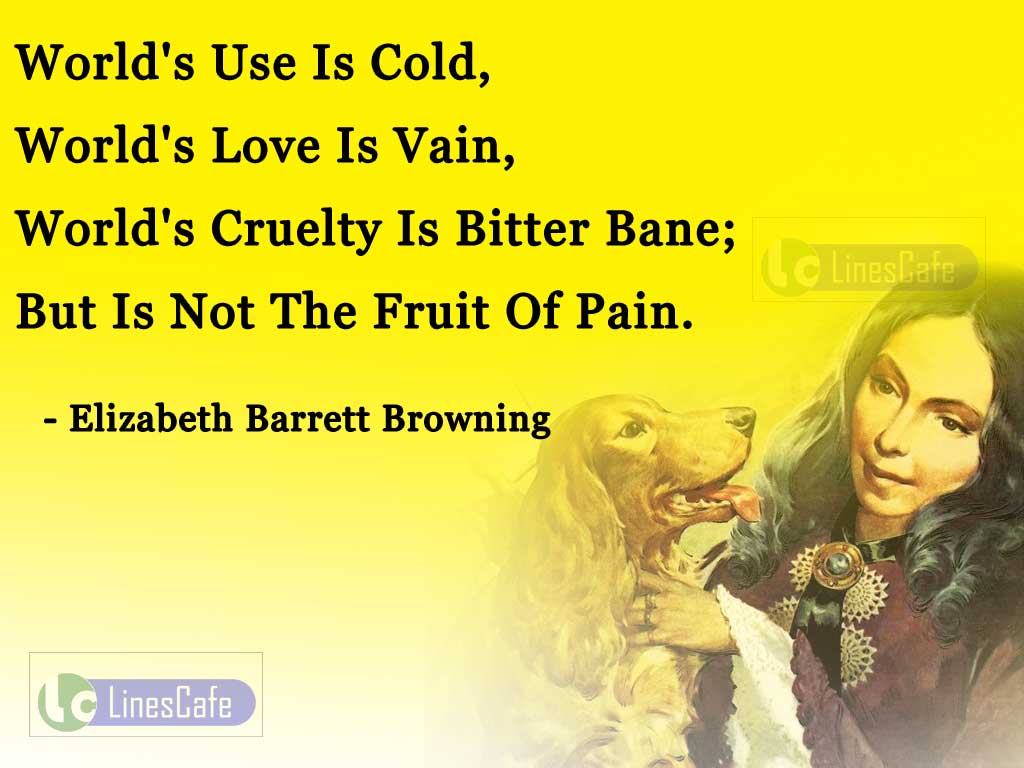
Famous Poet Elizabeth Barrett Browning Top Best Quotes (With Pictures
By her death, Elizabeth Barrett Browning (1806-1861) was a foundational figure herself for women writers in Britain, Europe, and North America. She was famous not only for the epic verse novel Aurora Leigh (1856), the first extended portrait of the woman writer in English poetry, but also for generically diverse works in four progressively.

Analysis of Poem 'How Do I Love Thee?' by Elizabeth Barrett Browning
read this poet's poems. Born on March 6, 1806, at Coxhoe Hall, Durham, England, Elizabeth Barrett Browning was an English poet of the Romantic Movement. The oldest of twelve children, Elizabeth was the first in her family born in England in over two hundred years. For centuries, the Barrett family, who were part Creole, had lived in Jamaica.
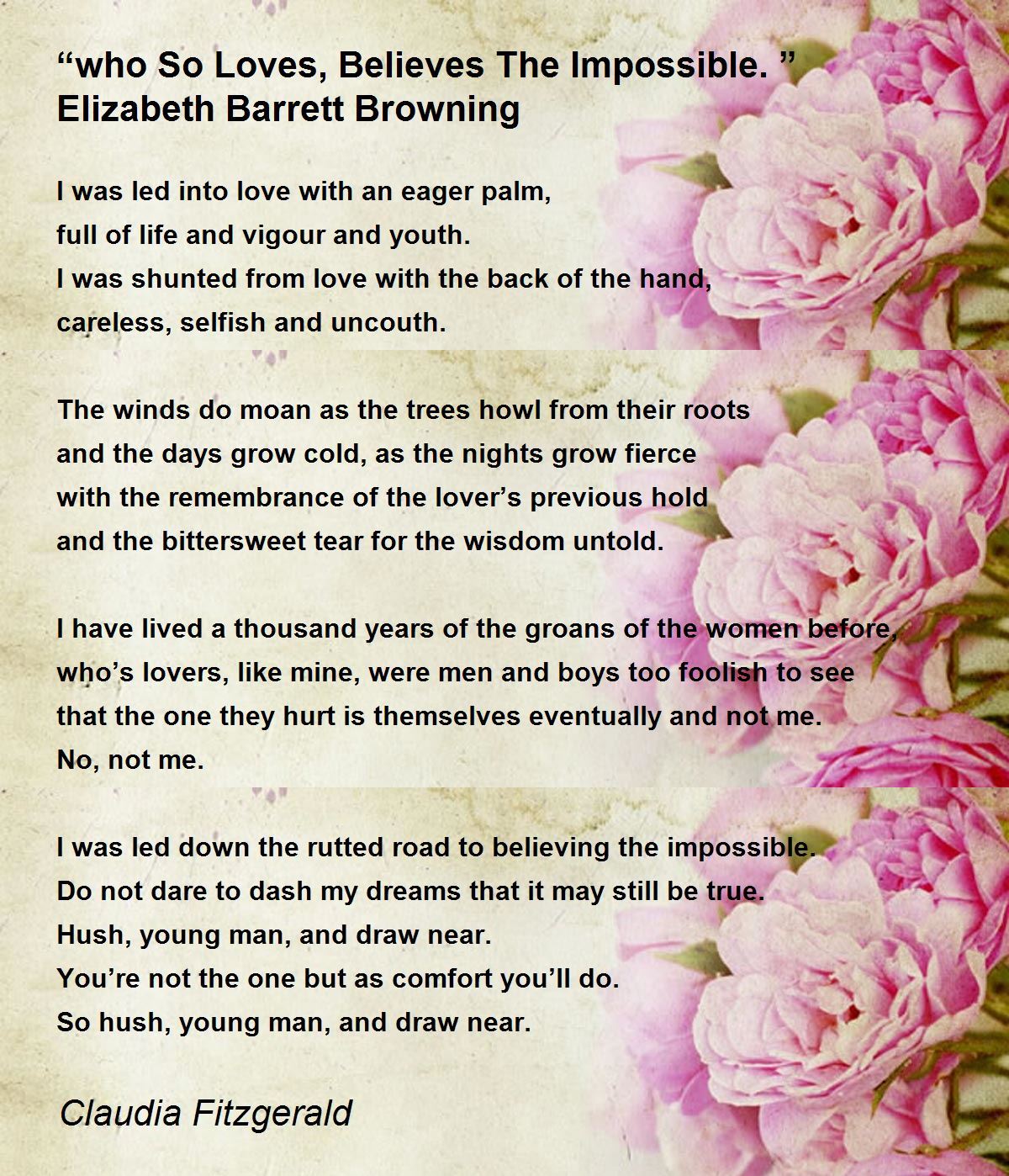
“who So Loves, Believes The Impossible.” Elizabeth Barrett Browning
Frasi di Elizabeth Barrett Browning Scopri citazioni e frasi celebri interessanti e verificate · Elizabeth Barrett Browning è stata una poetessa inglese, moglie del poeta Robe…
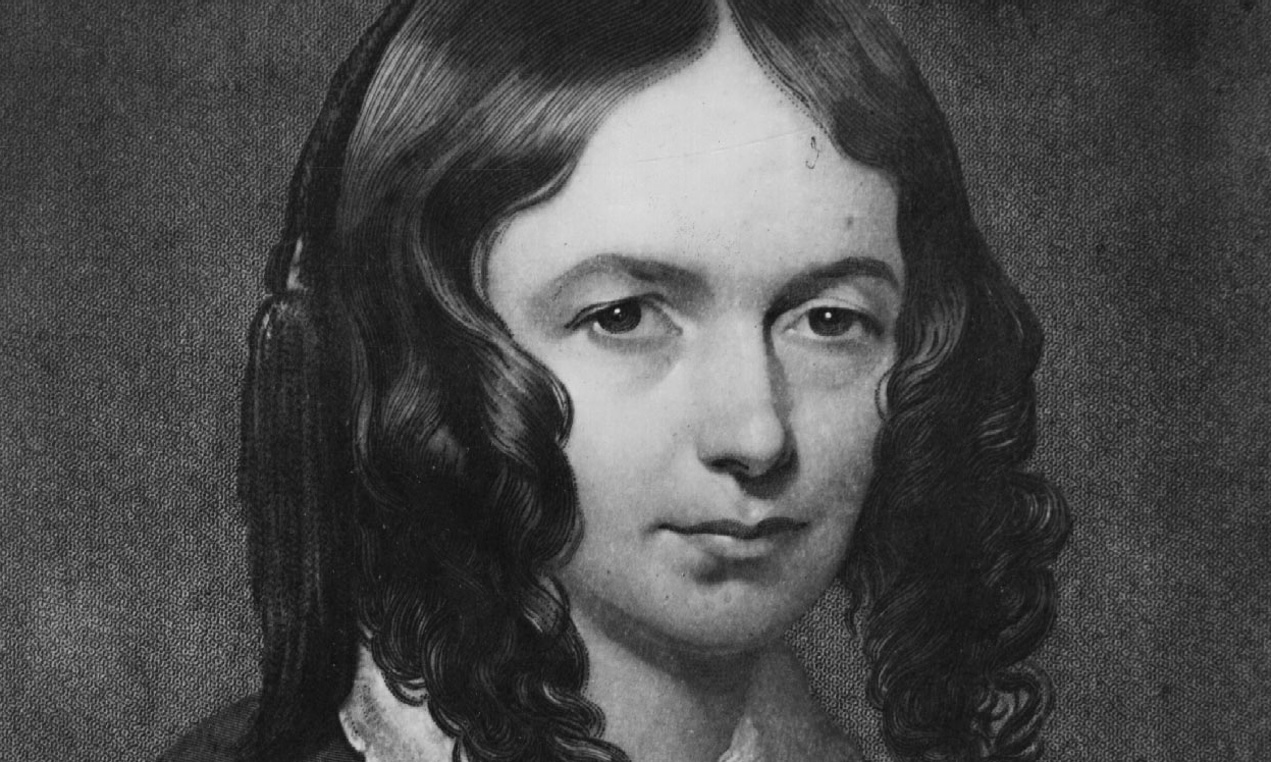
Elizabeth Barrett Browning's five best poems Books The Guardian
Two-Way Mirror: The Life of Elizabeth Barrett Browning by Fiona Sampson is published by Profile on 18 February. After being diagnosed with a severe respiratory illness, Barrett Browning was forced.
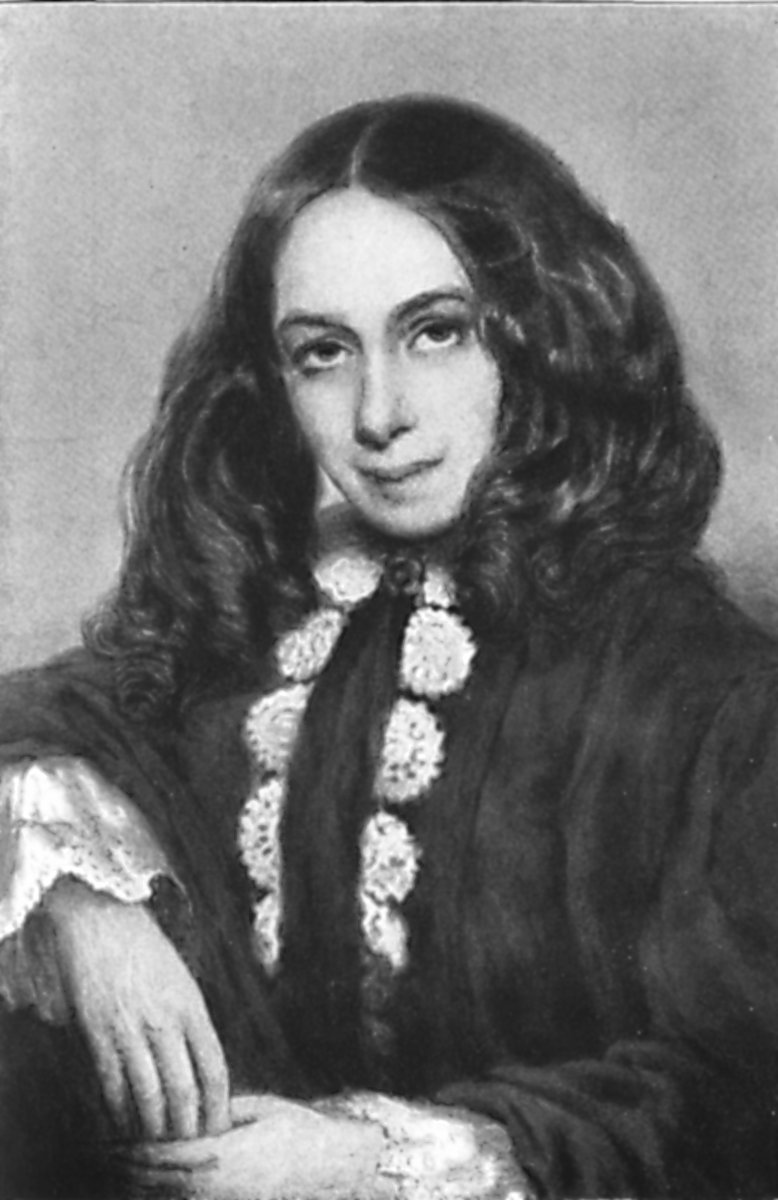
tvcinemateatro―i protagonisti Elizabeth Barrett e Robert Browning Un
Elizabeth Barrett Browning (née Moulton-Barrett; 6 March 1806 - 29 June 1861) was an English poet of the Victorian era, popular in Britain and the United States during her lifetime and frequently anthologised after her death.Her work received renewed attention following the feminist scholarship of the 1970s and 1980s, and greater recognition of women writers in English.

Cartolina con aforisma di Elizabeth Barrett Browning (14) Elizabeth
The complete poetical works of Elizabeth Barrett Browning by Browning, Elizabeth Barrett, 1806-1861. Publication date 1900 Topics Browning, Elizabeth Barrett, 1806-1861, Browning, Elizabeth Barrett, 1806-1861, English poetry, English poetry Publisher Boston : Houghton Mifflin ; Cambridge, Mass. : Riverside Press

Celebrating Love with Elizabeth Barrett Browning Lady Budd
Introduction. Elizabeth Barrett Moulton-Barrett was born in 1806 at Coxhoe Hall in County Durham, the eldest of the twelve children of Edward Barrett Moulton-Barrett, who was from a family of plantation owners, involved in the rum and the sugar trade, and Mary Graham Clarke. Elizabeth spent most of her childhood at Hope End, the family home in.

Elizabeth Barrett Browning Quote Christin Ditchfield
Elizabeth Barrett Browning died in her husband's arms in 1861. Last Poems was published posthumously and included 'A Musical Instrument'. It is deceptively simple: the great God Pan, 'Spreading Ruin and scattering ban' is a destructive as well as a creative force: he makes music by doing damage. It is as though this nineteenth-century.